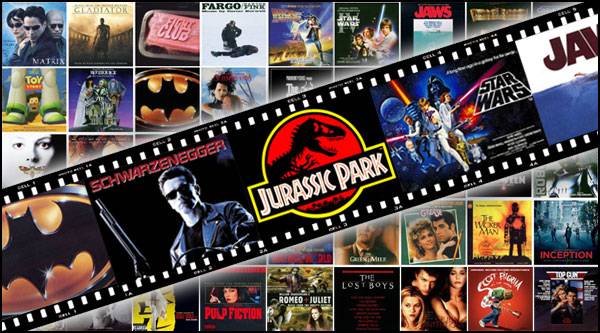Survival of the Fittest: The Changing State of Big Budget Movies

In the summer of 1975, crowds of patrons gathered into air conditioned theaters to watch Steven Spielberg’s Jaws. Before Jaws, the summer season was not a time for the greatest and largest films. Blockbuster films as they came to be know did not exist before 1975. However, in 2017, every month is a block buster month. With tentpole films releasing in the winter and fall. How did this rise of major motion pictures flooding the market come about? How did the entire year become saturated with blockbuster films? And how long can this level of cinematic output last?
Jaws had a troubled production. However it’s release in the summer of 1975 was not random. Before Jaws, summer was a definitive low season for movies. Nigel Andrews of the Financial Times interviewed David Brown about the release and Brown said, “The release of the film was deliberately delayed till people were in the water off the summer beach resorts.”
Later films followed Jaws’ summer release. Star Wars in 1977, The Empire Strikes Back in 1980, and Indiana Jones: Raiders of the Lost Ark in 1981. Each of these films were released between May and July. Taking full advantage of the summertime movie going public. However the summer movie release template was diverged from, even early on. Superman: The Movie was released in December of 1978, and became the second highest grossing film of the year in the span of two weeks.
Even now this March-December schedule is being pushed. James Surowiecki with The New Yorker writes on American Sniper’s January opening breaking box office. American Sniper went on to make over 547.4 million dollars despite opening in January of 2014. January is regarded as a deadzone for major film releases.
Much the same was felt about February until in 2015, 20th Century Fox’s Deadpool went onto to becoming the highest grossing R rated movie of all time. That is until the film It broke the record in 2017. It opened in September.
Box office records are being broken more and in less time. This is due to more big budget films being released each year. The rise of franchises and adapted movies with pre built in fan bases has launched these movies budgets even higher. Out of the ten highest grossing movies of the year, all ten were adapted from some sort of previous media. The Fate of the Furious, Despicable Me 3, and Pirates of the Caribbean: Dead Men Tell no Tales are all sequels of popular films. Beauty and the Beast and It are both cinematic remakes. Wonder Woman, Spiderman: Homecoming, Thor Ragnarok, and Guardians of the Galaxy Vol. 2 were all adapted from comic book’s as a part of a cinematic universe. The concept of cinematic universes of interconnecting films and tie ins has altered the state of modern movies even more.
Block buster films are the goal for all movies right now. There is no question about that. However, the response to this flood of high budget, high profile movies is mixed. Critics have praised and derided this flood of movies. Not all of these cinematic ventures have been successful. Ghost in the Shell was a remake of a popular 1990s movie, much like Beauty and the Beast and It, but it crashed and burned at the box office. Justice League was also based on a popular superhero franchise and underperformed at the box office. However , beyond critical and box office reception, what are audience’s reaction to this new age of movies?
“I haven’t seen a whole bunch of movies,” said Sophomore Karlee Brower, “I liked The Foreigner,” The Foreigner is a smaller budgeted Jackie Chan action film adapted from a smaller novel.
“I don’t get to a lot of movies. It depends on what kind of movie, I don’t watch, like, a whole bunch of big movies, but from what I’ve seen, some of them can be not the best.”
Brower’s sentiment lines up with several industry analysts decrying the oversaturated market. Scott Mendelson of Forbes writes “One of the problems that we’ve had this summer, aside from the fact that most of the would-be “big” movies aren’t very good, is that we’ve had what amounted to one big would-be franchise tentpole offering opening after another, week-in and week-out”
“I saw Coco and that was insanely good,” said Senior Riley Box. Coco, the film in question is the latest release from Disney Pixar that has grossed over 165.8 million dollars in two weeks.
For Box, and many like him, the existence of an ongoing franchise isn’t enough to entice ticket sales. It’s the quality of adaption and how it innovates, film to film.
“I only like the franchises when they add something new to it, like the Transformers movies don’t really add something new to it, if I like the source material and I like the direction that they’re going in I will hopefully like the sequels.”
Variety more and more in the high competition field for year long tentpole films has proven to be more vital than ever. For blockbuster movies to survive, they must evolve.







